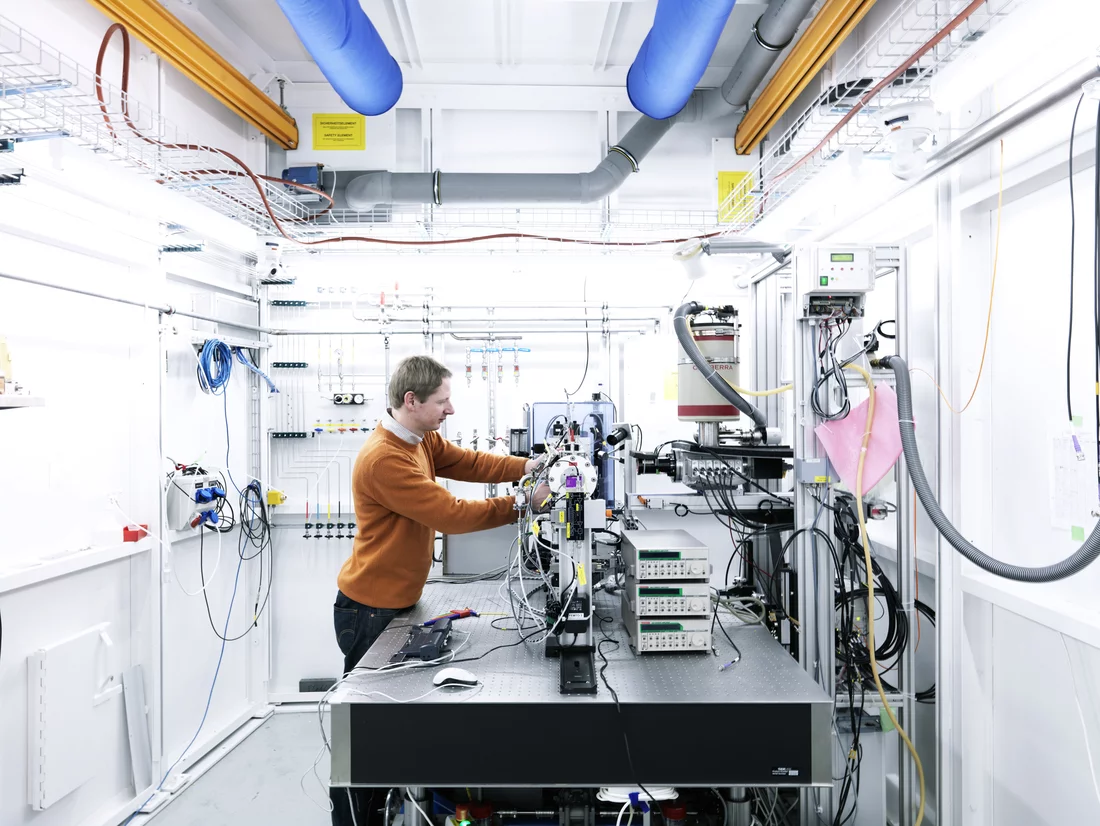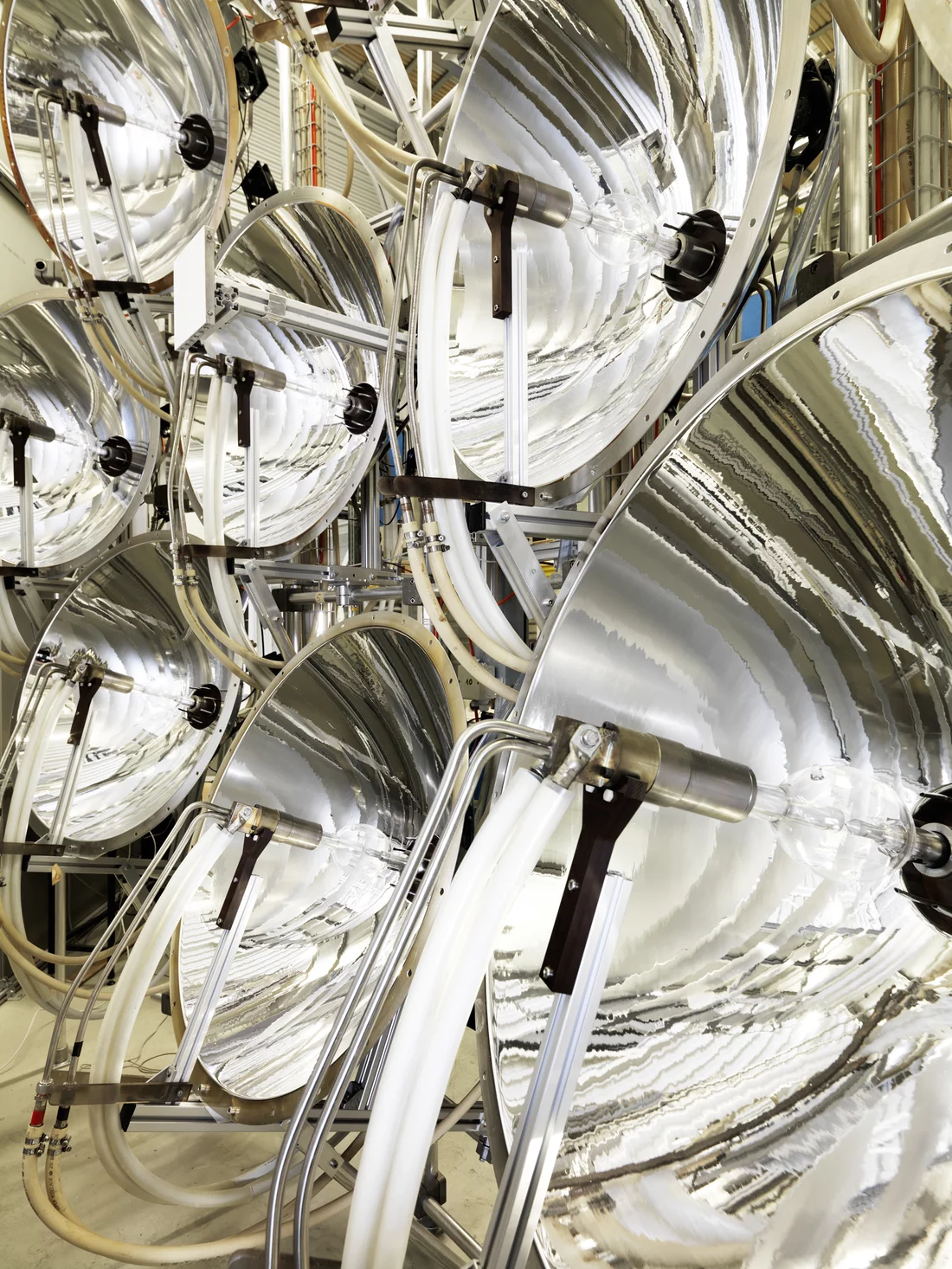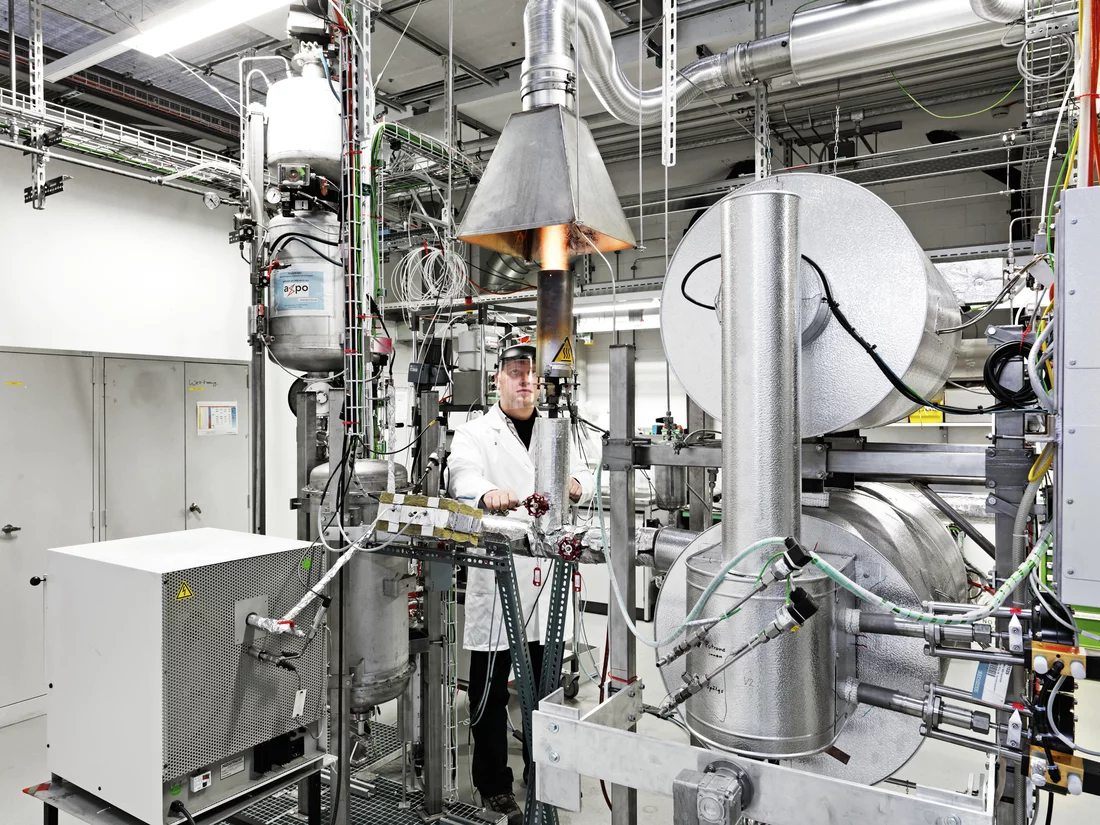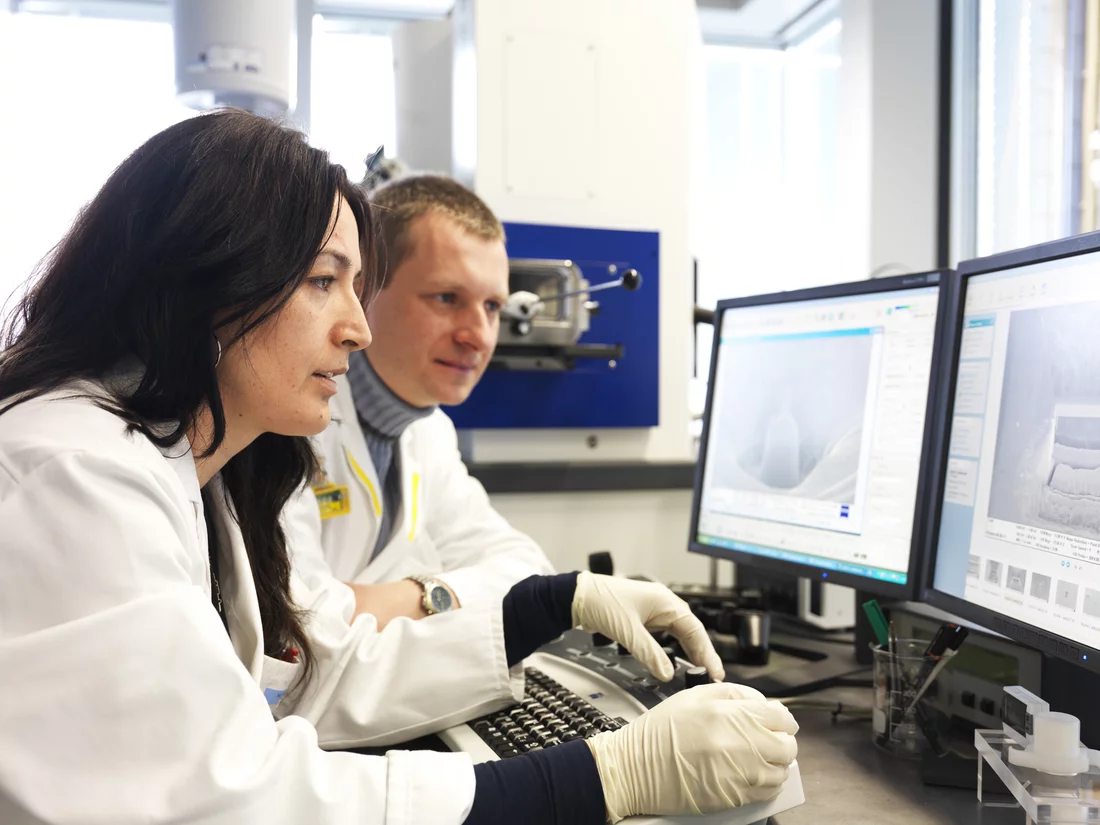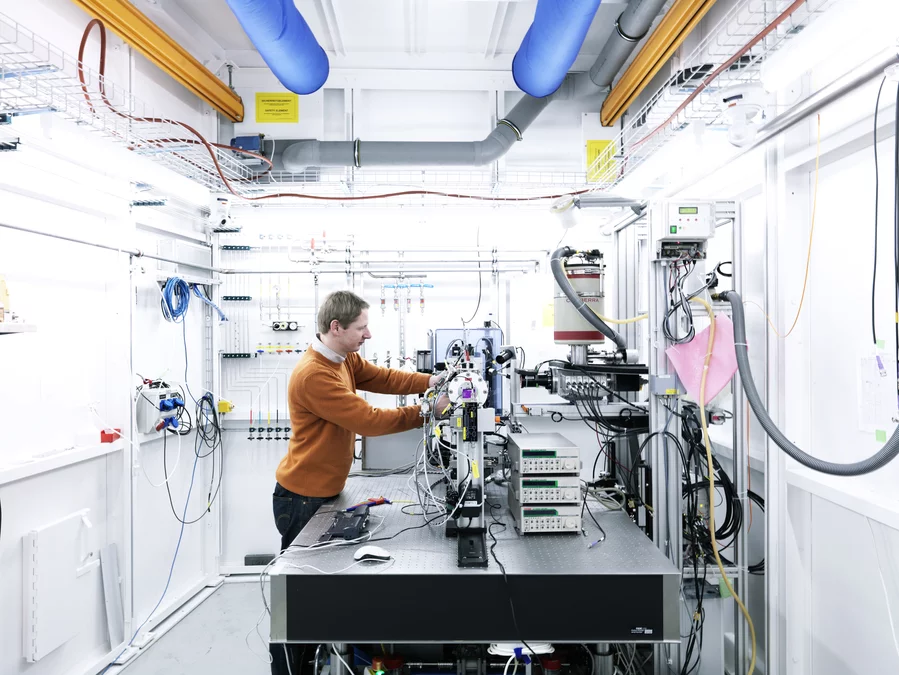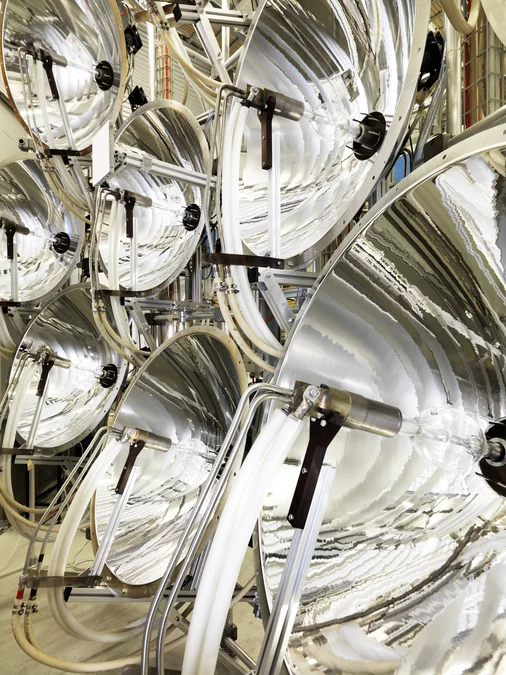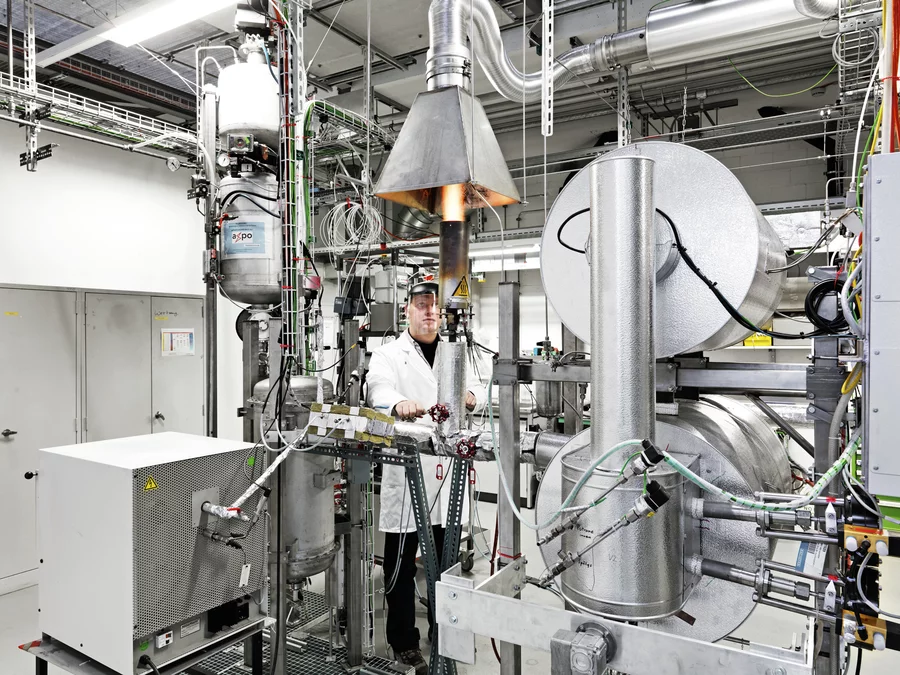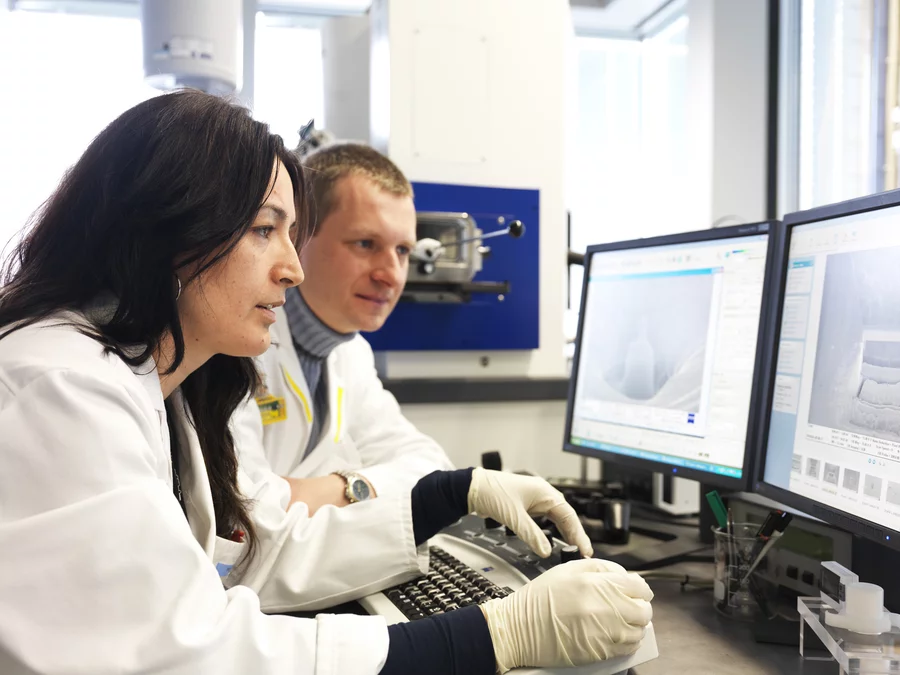Paul Scherrer Institute takes part in European Energy Research Alliance
The development of pathways towards a sustainable energy supply is one of the most urgent technical challenges facing us today. The Paul Scherrer Institute (PSI) has, for many years, made important scientific contributions to new energy technologies. These include the generation of biomethane from waste wood, the production of fuels from highly concentrated sunlight, and the development of new materials for energy conversion and energy storage devices. PSI has now been invited, as a member of the European Energy Research Alliance, EERA, to contribute with other institutions in a number of newly initiated European energy research programmes – an indication of the high regard with which PSI's research in this field is viewed internationally. It is intended that EERA members pool the competences of their institutions in the field of energy research, thus helping to increase research efficiency.
Many institutions throughout the whole of Europe are currently working on new energy technologies. However, it often happens that research is carried out into similar themes at different locations, and the same experiment may even occasionally be unnecessarily repeated. This should not happen under the European Commission's new SET (Strategic Energy Technology) plan, in which it is intended that a number of leading research institutions work on joint research programmes, co-ordinate the tasks involved, and contribute their particular competences and resources. This co-operation makes the work more efficient in many ways. For example, the participating institutions can agree on comparable experimental conditions, making it easier to evaluate and assess different experiments or technologies. Institutions may also offer each other access to special equipment, which does not therefore have to be operated in many separate locations.
PSI – involved from autumn 2010
The first programmes were initiated in the spring of 2010, when the SET plan was launched, with the next due to follow in the autumn – amongst which are expected to be programmes with PSI participation. The themes which may involve PSI contributions include some of the areas that are already important focuses of energy research at PSI:
- Concentrated solar energy – highly focused sunlight is used to generate chemical reactions which may, for example, produce fuels.
- Bioenergy – biomethane is generated from biomass, such as waste wood or sewage sludge, and can then be fed into the normal gas supply network.
- Basic research into materials for energy technologies – here, new materials are being developed to increase the efficiency of chemical processes in energy conversion systems, such as new catalyst materials for fuel cells.
- Materials for nuclear technologies – in this case, new materials are being developed for use in nuclear power plants which can reliably withstand the conditions for the more efficient operation of such plants over a long period.
Recognition for PSI
To be welcomed into the European Energy Research Alliance, EERA, is a sign of recognition for the Paul Scherrer Institute and for Swiss energy research as a whole – and an indication of the esteem in which Swiss energy research is held
, emphasises Philipp Dietrich, energy researcher at PSI. Apart from its own energy research, PSI will also contribute the research possibilities available at the institute's large research facilities, such as the Swiss Light Source SLS and, in the future, also the SwissFEL X-ray free-electron laser
. The advantages offered by these facilities include valuable insights into the structure and properties of new materials for the energy sector.
About PSI
The Paul Scherrer Institute develops, builds and operates complex large research facilities and makes them available to the national and international research community. PSI's own research focuses on solid state research and material sciences, elementary particle physics, biology and medicine, and research into energy and the environment. With a workforce of 1300 and an annual budget of about 260 million CHF, this is the largest Swiss research institution.
Contact
Prof. Dr. Alexander Wokaun, Member of the Steering Committee for the EERA,Paul Scherrer Institute, 5232 Villigen PSI,
Telephone: +41 56 310 27 51, E-mail: alexander.wokaun@psi.ch,
Dr. Philipp Dietrich, Staff Member on the Steering Committee of the EERA and Managing Director of the Competence Center for Energy and Mobility (CCEM),
Paul Scherrer Institute, 5232 Villigen PSI,
Telephone: +41 56 310 45 73, E-mail: philipp.dietrich@psi.ch,

